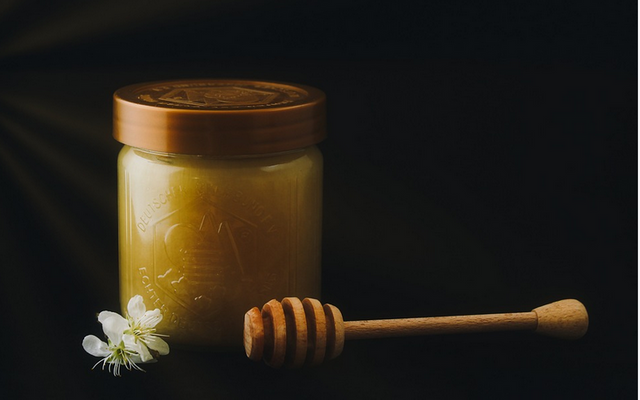The Sweet Benefits of Honey

Hey! Do you like honey?
I sure do! Not only do honey taste good, they are beneficial to the body too!
Honey, made by bees from the nectar of flowers, is a sweet, thick liquid. It has a long history of use as both a sweetener and a medicine. This article will discuss a few of honey's many uses.
Antioxidants can be found in abundance in honey.
Free radicals are unstable chemicals that can harm cells and contribute to degenerative diseases, including cancer, heart disease, and Alzheimer's; antioxidants help protect the body from this type of damage. The organic acids, flavonoids, and phenols found in honey all work together to protect against cell damage.
Honey can fight off germs and other microorganisms.
Honey's natural antibacterial and antimicrobial qualities make it useful in the battle against infectious germs and bacteria. Due to its antibacterial and antifungal qualities, honey is widely used as a complementary treatment for a variety of infectious diseases and wounds.
A cough or sore throat might be relieved with honey.
Honey's antibacterial and antiviral properties have made it a popular choice as a treatment for colds and respiratory infections. Coating and soothing the throat, reducing irritation, and combating dangerous microorganisms are all benefits you may experience. A common home cure for a cough or sore throat is a mixture of a tablespoon of honey, a warm glass of water, and a slice of lemon.
Honey improves stamina and performance in sports.
Honey's carbohydrate content means it can serve as a rapid source of energy. As a result of its low glycemic index, it is capable of providing continuous energy without triggering a rapid increase in blood sugar levels. Because of this, honey is often used as a source of natural energy by athletes and other physically busy people.
Honey aids in the digestive process.
Honey's prebiotic qualities indicate it may encourage the development of healthy bacteria in the digestive tract. Constipation, diarrhea, and irritable bowel syndrome are among the conditions that may benefit from better digestion (IBS).
Honey is beneficial to the skin in many ways.
Honey is commonly used as an all-natural treatment for skin disorders like acne, eczema, and psoriasis due to its moisturizing and antimicrobial characteristics. In addition to calming irritation and reducing inflammation, it can also help protect against bacterial infections.
A night of uninterrupted sleep may be facilitated with honey.
Honey's ability to boost melatonin levels and improve sleep quality has been widely documented. The hormone melatonin has a role in controlling when we sleep and when we wake up. Honey, eaten just before bed, has been shown to raise melatonin levels and improve the quality of sleep.
In conclusion, honey has been utilized for millennia as a sweetener and as a therapeutic element. Antioxidant, antibacterial, and antimicrobial capabilities, as well as the potential to ease a cough and sore throat, are just a few of its many advantages. In addition to promoting better sleep, honey can increase energy, enhance athletic performance, aid digestion, and even improve skin health. Honey has many positive effects on health and wellness and should be incorporated into both your diet and skincare routine.